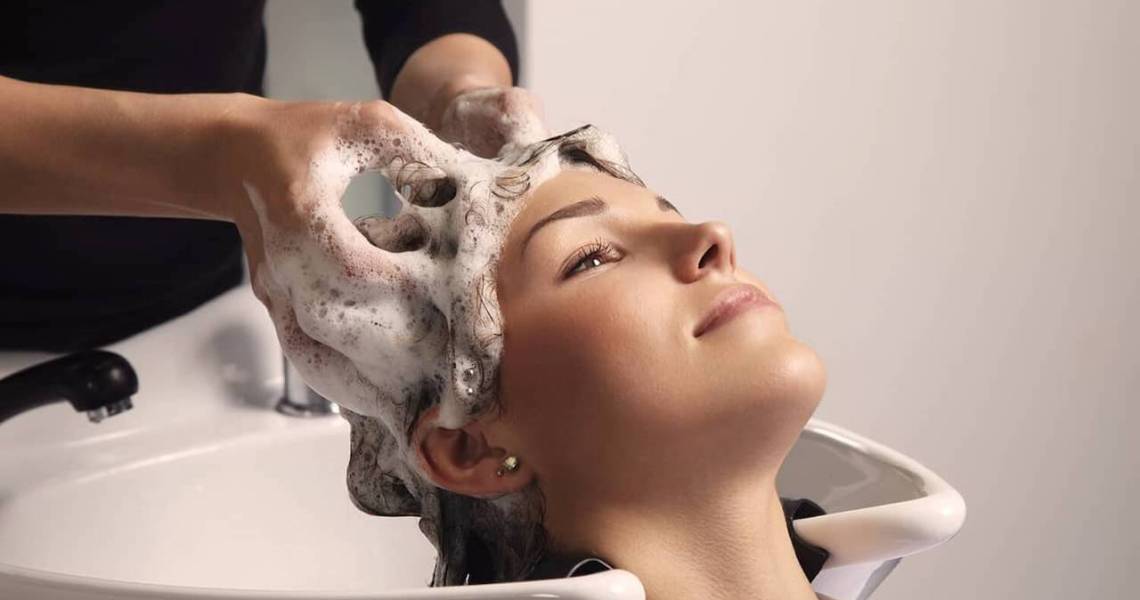Since the beginning of 2020, the ‘skinification’ of hair has reached new heights.
Hair-care brands have moved beyond the basic scalp scrub to debut scalp serums and ampoules, while also bringing more skin-care-like ingredients like probiotics, CBD and salicylic acid into product formulas. Brands like Dr. Barbara Sturm and Virtue launched hair serums in April and June, respectively, while R+Co debuted CBD shampoo and conditioner, also in April. The Inkey List will offer salicylic and caffeine scalp serums in September. With the help of these products, the global hair-care market is expected to grow at a growth rate of over 3% to $211 billion by 2025, according to Grand View Research.
“Over the years, people started spending lots of money on skin care, but were still washing their hair with [the equivalent of] dish soap,” said Howard McLaren, R+Co co-founder. “Millennials have become more transparent with brands about what they want and have dug deeper into the ingredients in their hair care and skin care. It has simply been a progress of education.”
According to McLaren, CBD helps address hair cuticle inflammation and dry scalp. R+Co saw sales exceed initial projections for the first month, by 150%, when its CBD product launched on April 1. The brand’s customer education efforts have largely relied on working with hairstylists who sell R+Co products in salons, which is R+Co’s largest sales channel. The brand declined to provide specific sales data. Customer enthusiasm for these products demonstrates an appetite for new and innovative formulas and products related to the scalp. Within two months of Virtue launching its Scalp Supplement product, it has become its No. 9 (out of 50) best-selling product, said Melisse Shaban, Virtue founder and CEO. The scalp product is sold both DTC and in retail partners like Sephora.
“The [Scalp Supplement] name is helpful,” said Shaban. “People understand supplementation, and they know they’re replacing something or adding something that they need more of. From our marketing standpoint, it was a pretty strong position to take.”
According to NPD data, consumers have prioritized skin care and hair care above all other beauty categories during Covid-19, with hair masks and hair treatments seeing a 30% growth in sales in the second quarter, ending June 30. Products like at-home hair dye have received renewed attention, with L’Oréal launching a hair color concierge on Thursday, while fears over pandemic stress-related hair loss have boosted sales of hair growth brands like Nutrafol. Shaban said that from her perspective, the ‘skinification’ of hair has accelerated as hair has come to represent not only style but also health and wellness.
“The better the ingredients are, the more likely [a better] outcome appears, and the better the hair looks. You’re going to continue to see this happen more with brands like ours, which use ceramides and peptides,” said Shaban.
While there may be a gold rush on the scalp due to product innovations and the influence of skin care, it’s important to remember how quickly customer attitudes can shift. Concerns around over-exfoliation of skin were reported contributions to the decline of Clarisonic, for example. According to a 2017 survey of 3,000 women by the retailer SkinStore, the average woman applies 16 products to her face before leaving the house. But given that includes both skin care and makeup, it’s difficult to discern how many products a person can use on their scalp before it becomes too much.
“I don’t know how many products somebody’s really going to use,” said Shaban. “So, we have to be a little careful about [offering too many options].”




